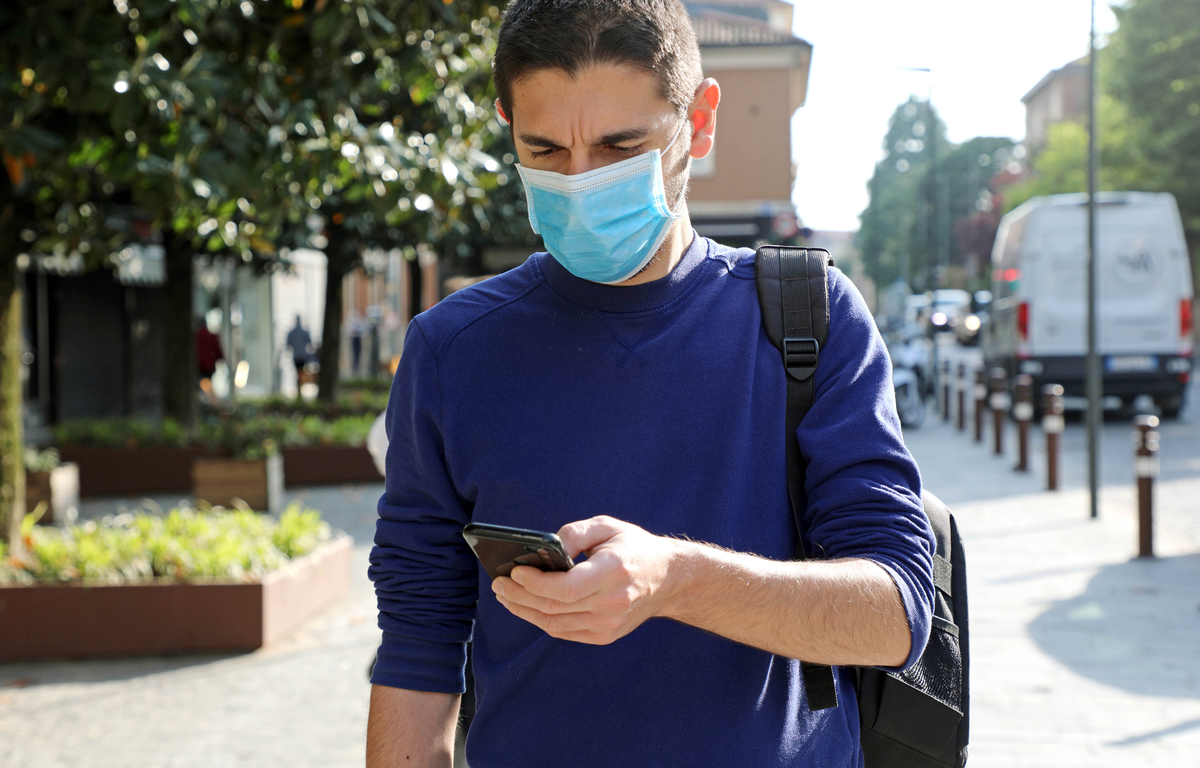CLARKSVILLE, TN (CLARKSVILLE NOW) – As the Delta variant of COVID-19 continues to spread across the country, concerns about its contagiousness are rising in Montgomery County: Active cases have nearly doubled in just the last week.
In our county alone, active cases have increased by 86.5% over the last week, according to data from the CDC’s website. Last Friday, July 23, there were 266 active cases. On Friday, July 30, there were 475.
Lags in reporting can cause these numbers to change, but the data has demonstrated a steady rise since the beginning of July.

Delta variant
“It’s almost as if we’re dealing with a completely different kind of virus,” Dr. Titus Daniels, an associate professor of medicine at Vanderbilt University in Nashville, told Clarksville Now about the Delta variant.
Daniels specializes in infectious diseases, and he said the majority – if not all – of new cases are being caused by the Delta variant. And all of the severe new cases are happening in those who haven’t received a vaccine.
“At all the hospitals across the country, and both at Vanderbilt and Tennova Clarksville, the vast majority of patients that are being hospitalized are patients who have not received a vaccine,” Daniels said.
He said he has yet to see one vaccinated person hospitalized with severe COVID-19.
“The Delta variant is now the dominant variant in the country,” said Dr. Mike Helwig, medical director for Campbell Airfield and Byrd Soldier Medical Home, and former chief of Blanchfield Army Community Hospital’s COVID clinic. “The CDC states that 83% of all cases in the U.S. are a result of the Delta variant. This is important because this form of the COVID virus is incredibly infectious.
“Some studies show that for a healthy person unvaccinated under 50 years old, you may be 2 1/2 times more likely to be infected with this form of the virus than with the variants this past winter,” Helwig told Clarksville Now.
A report shared Friday that circulated internally at the CDC called the Delta variant as contagious as the chicken pox, according to a report from The New York Times.
Additionally, the Delta variant is more transmissible than the viruses that cause infections like MERS, SARS, Ebola, the common cold, the seasonal flu and smallpox among others, The New York Times said.
Return of masks?
This new rise in cases has public health leaders making recommendations for all individuals regardless of vaccination status, including calls for the return of masking indoors.
The CDC recommended Tuesday that all folks resume wearing masks in public, indoor settings in areas where COVID-19 transmission is considered either substantial or high. Montgomery County has a high transmission rate, according to the CDC’s COVID-19 data tracker.
Fort Campbell announced Thursday it will once again begin requiring all individuals to wear masks indoors, and it plans to issue guidance in the coming days.
“Even if you are vaccinated, if you are going to be in an area where you can’t social distance and you don’t know the vaccination status of those around you, it is not a bad idea to wear a mask,” Helwig said.
“The reason for this is that the vaccine is about 88% effective in preventing infection. This is not 100%, but no vaccines we use for any disease is a 100%. Don’t be concerned when you hear that it is 88% effective. For the vast majority of the people who are ‘break through cases,’ people who get vaccinated but still get infected, the symptoms are very mild like you would expect from seasonal allergies or the common cold,” he said.
While these new recommendations could appear as a complete walk back from the loosening of restrictions earlier in the summer, Daniels said the information is changing in a way that is consistent with how those in public health are learning about the variant.
“As vaccination rates got to a higher level over the summer, and at that time, people who were vaccinated, there wasn’t really much data to suggest that they were becoming infected,” Daniels said.
Vaccinations
Even though this new variant is behaving differently, Daniels said the most helpful tool in stopping transmission is still the vaccine.
“The more people that can become vaccinated, the less chance that there’s actually virus that circulates and transmits. And the less virus there is that’s circulating and transmitting, the less chance there is for ongoing developments of mutations and new strains emerging,” Daniels said.
So what’s the point of a vaccine if there’s still a chance you can become infected?
“Because vaccination doesn’t necessarily prevent people from being infected with the virus, and (doesn’t prevent) the ability to spread it from one person to the next, vaccination predominantly is really helping people have either asymptomatic or minimally symptomatic illness should they become infected,” Daniels continued.
He added that there is a direct correlation between the level of community transmission and vaccination rates.
When asked what folks can do to help slow the spread of the Delta variant, Helwig agreed that vaccines are still our first line of defense.
“This is the most important thing you can do. The M-RNA vaccines are greater than 99% effective in preventing death and greater than 97% effective at preventing disease severe enough to prevent hospitalization,” he said.


